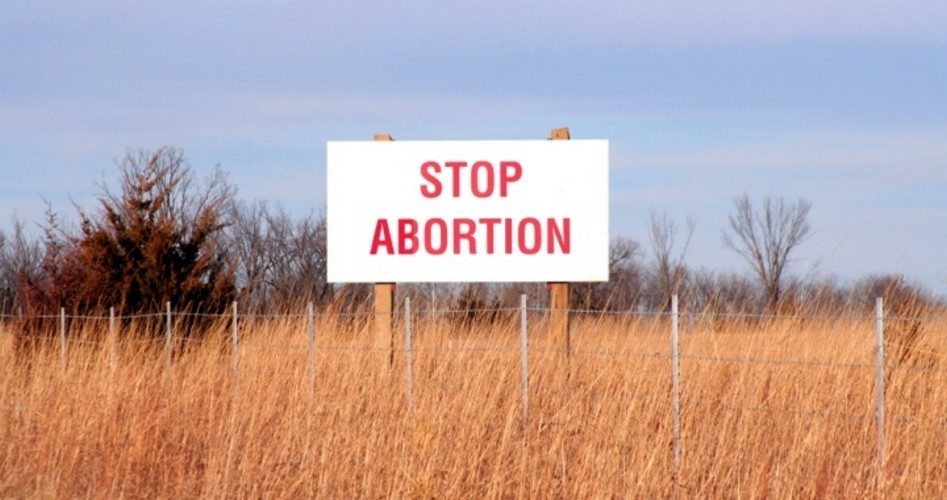
In a major victory for abortion opponents, Texas Gov. Rick Perry’s signing of a controversial law placing new restrictions on abortion was closely followed by Planned Parenthood’s announcement that it will close three of its clinics in the Houston area next month. Only one of them, in Byron, performs abortions, Austinist.com reported. The others are closing, the organization said, as a result of cuts to the Women’s Health Program in 2011, when Texas lawmakers voted to block Medicaid funds from going to Planned Parenthood.
“It is a travesty that Texas politicians are stripping healthcare from women across the state, harming lives and unraveling the health care safety net that has taken decades to build,” Melaney A. Linton, president and CEO of Planned Parenthood Gulf Coast, told the Huffington Post.
Gov. Perry, at a by-invitation-only signing ceremony, congratulated supporters of the abortion legislation for their efforts.
“You have been a very integral part of this very important day for all of us who support life,” the Republican governor said, as he stood flanked by state Representatives Glenn Hegar (R-Katy) and Jodie Laubenberg (R-Parker).”No one will ever have to ask, ‘Where were you when the babies’ lives were being saved?'” Perry said, as shouts of “Shame!” were heard from pro-abortion protesters outside.
The law, passed in a special legislative session called by the governor, will take effect 90 days after the end of the session. It will ban abortions in the state after 20, instead of the current 24, weeks of gestation and will place tougher restrictions on abortion drugs. The legislation, reported to be 117 pages long, also requires abortion clinics to be certified ambulatory surgical centers. Abortion supporters say the new requirements will force the closing of more clinics.
“Regulations imposed by the new law threaten to shutter all but five of the state’s abortion clinics,” wrote Salon.com’s Katie McDonough, who accused Texas Republicans of having “played fast and loose with women’s lives.”
The actual legislation, however, is nowhere as severe as McDonough makes it appear. It still allows abortion as a matter of “choice” for the first 20 weeks after fertilization, which, as the law states, allows a woman “adequate time to decide whether to have an abortion.” And even after 20 weeks, the prohibition applies only to elective abortions. The law specifically states “the Act does not apply to abortions that are necessary to avert the death or substantial and irreversible physical impairment of a major bodily function of the pregnant woman or abortions that are performed on unborn children with severe fetal abnormalities.” That appears to be a far cry from playing “fast and loose with women’s lives.”
Gregory Laughlin, writing for the inter-religious publication First Things, blames the lawmakers for playing fast and loose with the lives of pre-born infants suffering severe deformities. The law states as its objective a legitimate state interest in sparing infants from the pain inflicted by abortion procedures, claiming the ability of a fetus to feel pain starts no later than 20 weeks. “Yet the state refuses to protect such a child when he has a ‘severe fetal abnormality,'” wrote Laughlin, arguing that such an exception undermines the pro-life ethic. Continued Laughlin,
In other words, if the poor little baby is going to die from his disabilities after birth anyway, the state of Texas will explicitly allow his being killed in the womb despite the pain it will cause him. Permitting the killing of someone who will die soon anyway is the position of those who favor euthanasia. In fact, it is also the argument made by those who favor infanticide of babies born with serious disabilities that will likely result in their death shortly after birth. The legislation permits euthanasia by abortion.
A statement issued by Marjorie Dannenfelser, president of the pro-life Susan B. Anthony List, was obviously more enthusiastic about the new law.
“This is a lifesaving victory for Texas women and unborn children,” said Dannenfelser. “We thank Governor Perry, the pro-life legislators, and the entire statewide coalition including Texas Right to Life, Texas Alliance for Life, Concerned Women for America of Texas, 40 Days for Life, and so many others for making this happen.”
Despite the attention and controversy surrounding the measure, neither the new law nor the funding restrictions passed by the Texas lawmakers are unique to the Lone Star State. As Time magazine noted in a cover story in January of this year, the “abortion rights” movement has been losing ground steadily over the decades since the January 22, 1973 Supreme Court decision declaring abortion to be a constitutional right. More than 30 states now prohibit the use Medicaid funds to pay for abortions. The number of abortion providers nationwide shrank from 2,908 in 1982 to 1,793 in the 2008, the last year for which numbers were available, Time reported. Four states — Arkansas, Mississippi, and North and South Dakota — have only one abortion clinic.
“Getting an abortion in America is, in some places, harder today than at any point since it became a constitutionally protected right 40 years ago this month,” Time concluded.
Despite the ability of federal judges to fashion freshly minted “constitutional rights” in matters the Constitution nowhere mentions, battles over abortion continue to be fought state by state. The Supreme Court’s Roe v. Wade ruling unsettled a great many legal issues concerning the ability of states to protect human life. But it has clearly not settled the political wars over abortion 40 years later.



